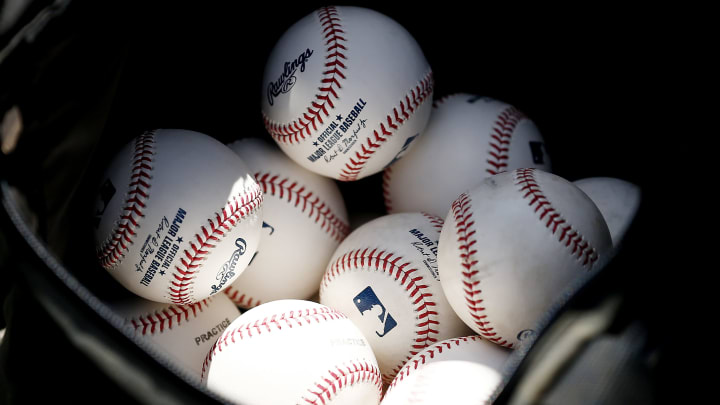Bombshell Investigation Claims MLB De-Juiced Baseballs for 2019 Postseason

Only two MLB teams averaged fewer than one home run per game in 2019. The Minnesota Twins and New York Yankees each finished with over 300 for the year, and the league average was a robust 226. The final dinger total for the entire league was 6,776. That number shot up from a total of 5,585 in 2018. We all saw it. Pop flies became short homers, hard-hit lasers became mammoth blasts. Everything ball was a little bit easier to barrel.
Then came the 2019 postseason. Judging by the reactions and instincts of baseball's best, the balls were clearly not traveling as far, and rumors began to emerge of a new type of baseball being used. A "de-juiced" ball, to be specific.
A bombshell investigation from New York Daily News claims MLB did, in fact, introduce a different baseball for the postseason, even if they continue to tell the world otherwise.
*juiced baseball scoop!*
— Bradford William Davis (@_beewilly) March 31, 2020
so, those funky balls from the 2019 postseason? despite MLB's persistent denials, new scientific research and player testimony strongly suggest MLB used older, less juicy balls during the playoffs.
Here's what you should know:https://t.co/NyKsKWyOTj
The main finding from the investigation is that some 2019 postseason baseballs were consistent with those used during the 2019 regular season, while others had matching "batch codes" to 2018 baseballs, which performed entirely differently. This means teams' postseason fates could have been altered, depending on what ball was used. A home-run swing could have resulted in a flyout, and vice versa. The noted difference in the baseballs was the thickness of the laces, with the juiced balls having thinner laces, producing less air resistance.
1⃣ Dr. Meredith Wills (@Bbl_Astrophyscs) acquired some Rawlings manufactured playoff game balls and tracked some of them back to 2018, which didn't carry as fall as the '19 rocketball. she found the lace thickness greatly varied in composition from *ball to ball* (2/5) pic.twitter.com/jjk5DW6GRd
— Bradford William Davis (@_beewilly) March 31, 2020
MLB and Rawlings still claim there was no change made to the baseball, yet independent researchers have gathered basic evidence that proves otherwise. Either one entity acted independently, or there's some funky mathematics going on here.
There is also the question of why the league, if leadership was aware of the change, would want home run totals to go down in the postseason. Do they view regular season contests as experimental ground that doesn't matter, while the postseason remains sacred? If so, that's a significant leap and a misalignment of expectations.
Bottom line is, pitchers claim the variance was easy to spot, even ballpark to ballpark.
4⃣That pitcher noticed a major difference between baseballs in home and road playoff games. Home baseballs "were very, very difficult to hold...[I] showed one of our clubhouse guys and 'There's no way that's one of our baseballs.'” (5/5) https://t.co/NyKsKWyOTj
— Bradford William Davis (@_beewilly) March 31, 2020
The players aren't stupid, and were aware something had changed. A pitcher can grab a baseball and feel the difference in two seconds. The simple answer could be Commissioner Rob Manfred making yet another unpopular and unnecessary decision. The evidence points toward that being true.